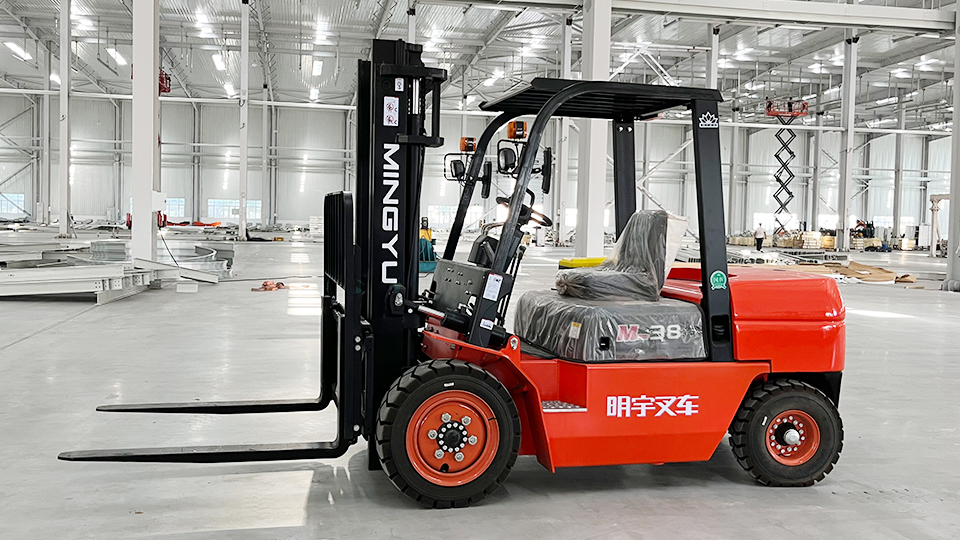
Introduction: Understanding the Role of a Material Handler
A material handler is a crucial cog in the machinery of any company that deals with physical products. They are the backbone of logistics, ensuring that raw materials, components, and finished goods are moved efficiently and safely throughout a warehouse, manufacturing plant, or distribution center. Their work directly impacts a company's productivity, inventory accuracy, and overall supply chain health.
The salary of a material handler can vary significantly, influenced by a multitude of factors, from geographical location and industry to the specific skills they possess and their level of experience. This article will provide a comprehensive breakdown of a material handler's salary, exploring the key variables that determine earning potential and offering insights into career progression within this vital field.
The Average Material Handler Salary: A National Overview
Based on recent data from sources like ZipRecruiter, PayScale, and Zippia, the average hourly wage for a material handler in the United States typically falls between $17 and $20 per hour. This translates to an annual salary of approximately $35,000 to $42,000.
However, these figures are just a starting point. It's important to understand that this is a median range, and a material handler's actual pay can be higher or lower depending on their specific circumstances.
Hourly vs. Annual: Many material handler positions are paid hourly, which allows for overtime opportunities. During peak seasons or for companies with high demand, a material handler can significantly increase their annual earnings through overtime pay.
Entry-Level vs. Experienced: A new material handler with less than a year of experience can expect to earn on the lower end of the spectrum, often starting around $16 to $17 per hour. With 1 to 4 years of experience, the average hourly wage can increase to $18 or more. Senior or expert material handlers with over 5 years of experience may earn well above the average, with some reaching $24 per hour or more.

Key Factors Influencing Material Handler Salary
Several factors converge to determine a material handler's earning potential. Understanding these variables is key to negotiating a fair wage and planning for career growth.
1. Geographic Location
As with most jobs, location is one of the most significant factors in a material handler's salary. Pay scales are heavily influenced by the cost of living, the density of industry, and the local job market's demand for skilled labor.
Highest Paying States: States with high costs of living and bustling industrial hubs often offer higher wages. For example, California, Washington, Minnesota, and Pennsylvania consistently rank among the top-paying states for material handlers. In some high-demand cities, like San Francisco or New York, the average salary can be significantly higher than the national average.
Lower Paying States: Conversely, states with a lower cost of living and less industrial activity, such as Louisiana, Alabama, and Florida, tend to have lower average wages for material handlers.
2. Industry
The industry in which a material handler works can dramatically affect their salary. Highly regulated or technically complex industries often pay a premium for skilled material handlers due to the specialized knowledge and certifications required.
High-Paying Industries:
Aerospace and Defense: These industries require meticulous handling of high-value and often sensitive materials, leading to higher pay.
Pharmaceutical and Biotechnology: Due to strict regulations and the delicate nature of the products, material handlers in this sector are compensated well.
Manufacturing (Specialized): Companies that manufacture complex machinery, electronics, or other specialized goods often offer higher salaries.
Standard-Paying Industries:
Retail and E-commerce: While there is high demand in these sectors, the pay is often closer to the national average.
Food and Beverage: The high volume and rapid turnover of goods in this industry keep demand steady, but pay is generally within the average range.
Logistics and Warehousing: This is the core industry for material handlers, and salaries here are a good benchmark for the national average.
3. Skills and Certifications
A material handler's skillset is a powerful tool for negotiating a higher salary. While a high school diploma or GED is often sufficient for entry-level roles, specialized skills and certifications can make a candidate stand out and command a higher wage.
Forklift Certification: This is the single most important certification for a material handler. The ability to operate a forklift, which is crucial for moving heavy loads and palletized goods, can boost a salary by a few dollars per hour.
RF Scanner and WMS Proficiency: Many modern warehouses use Radio Frequency (RF) scanners and Warehouse Management Systems (WMS) to track inventory. Proficiency with these systems is highly valued by employers and can lead to higher-paying roles.
Other Machinery: Expertise in operating other types of material handling equipment, such as pallet jacks, cherry pickers, or reach trucks, can also increase a material handler's salary.
Safety and Compliance: Certifications in hazardous material (HAZMAT) handling or other safety-related training show a commitment to workplace safety and are often rewarded with higher pay.
4. Company Size and Type
The size of the company and the type of business model can also affect salary. Larger corporations, particularly those with a national or global presence, typically have more structured pay scales and may offer more competitive wages and benefits than smaller, local businesses.
Large Corporations: Companies like Amazon, FedEx, or Walmart often have established pay bands, comprehensive benefits packages, and opportunities for advancement.
Small Businesses: While they may not offer the same pay scale as larger companies, smaller businesses might provide a more flexible work environment or a greater sense of job security.

A Deeper Look: The Material Handler Job Description
To fully appreciate a material handler's salary, it's essential to understand the scope of their responsibilities. The job is physically demanding and requires a combination of physical strength, attention to detail, and a focus on safety.
Receiving and Unloading: Material handlers are responsible for receiving incoming shipments, verifying the contents against bills of lading, and safely unloading materials from trucks.
Inventory Management: This is a core function. Material handlers must meticulously label, organize, and store items in designated locations. They also perform regular cycle counts and assist with full-scale inventory audits to ensure accuracy.
Order Picking and Staging: When orders are placed, material handlers are responsible for locating the correct products, picking them from storage, and preparing them for shipment. This includes tasks like packaging, labeling, and shrink-wrapping.
Equipment Operation: Operating machinery is a daily part of the job. This can range from simple hand trucks and pallet jacks to complex powered industrial trucks like forklifts.
Safety and Maintenance: A material handler is a first responder to workplace safety. They must follow all safety protocols, maintain a clean and organized work area, and report any equipment or material issues to a supervisor.
Career Advancement and Salary Growth
A material handler role can be a stepping stone to a rewarding career in logistics and supply chain management. With experience, additional training, and a strong work ethic, a material handler can advance into higher-paying roles.
Lead Material Handler or Team Lead: This role involves supervising a small team of material handlers, overseeing daily operations, and acting as a liaison between the team and management.
Inventory Specialist: This position requires a more in-depth understanding of inventory management systems and processes. An inventory specialist is responsible for tracking inventory levels, investigating discrepancies, and implementing strategies to optimize stock flow.
Warehouse Supervisor or Manager: This is a significant leap in responsibility and salary. A warehouse manager is responsible for the entire operation, including staffing, budgeting, safety, and productivity. Salaries for warehouse managers can range from $60,000 to over $100,000 per year, depending on the size and scope of the facility.
Supply Chain and Logistics: A material handler with a passion for logistics can move into roles like a supply chain analyst or a logistics coordinator, which require a broader understanding of the entire supply chain.
Conclusion: A Foundation for Success
The salary of a material handler is a reflection of a role that is both physically demanding and technically critical to the modern economy. While the average pay provides a decent living, a material handler's true earning potential is unlocked through a combination of experience, specialized skills, and a strategic approach to career growth.
By seeking out opportunities in high-paying industries, gaining valuable certifications like forklift operation, and demonstrating a commitment to safety and efficiency, a material handler can build a stable and rewarding career with a clear path to higher pay and leadership positions.
Name: selena
Mobile:+86-13176910558
Tel:+86-0535-2090977
Whatsapp:8613181602336
Email:vip@mingyuforklift.com
Add:Xiaqiu Town, Laizhou, Yantai City, Shandong Province, China